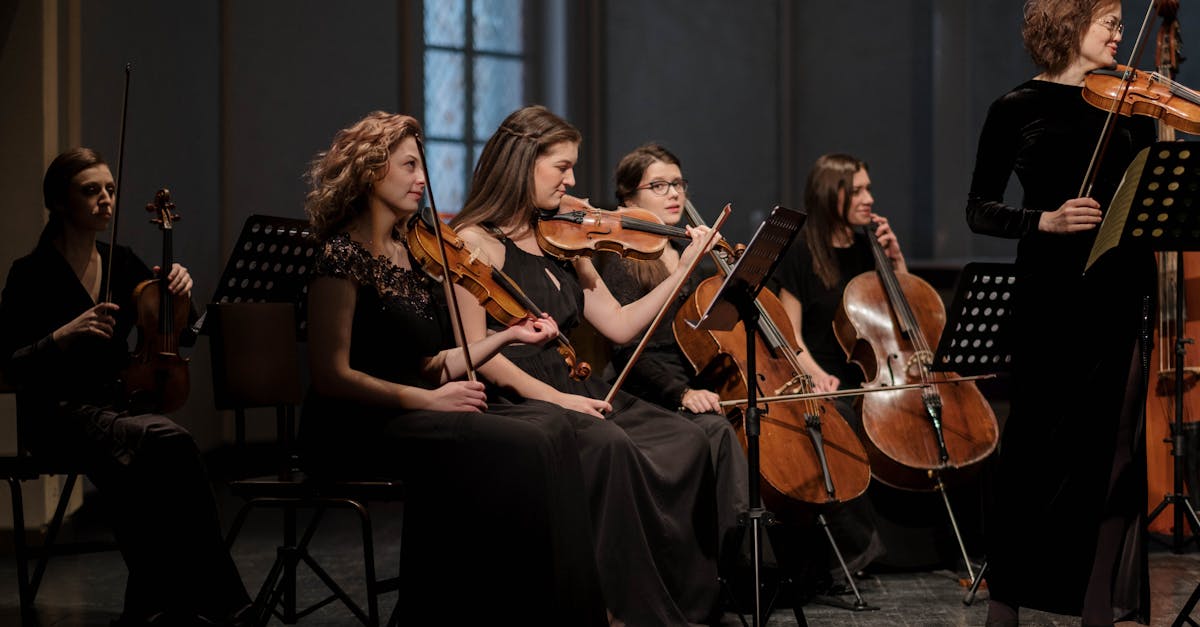Harmonious Echoes Global Melodies Explained
Introduction
In today's increasingly connected world, music serves as a powerful bridge between cultures and societies. Harmonious Echoes dives into the enchanting world of global melodies, illustrating how diverse musical forms enrich our understanding of life. Music's universal language transcends borders, offering listeners a sense of connection and shared experience. It echoes the values, traditions, and emotions of people worldwide, revealing both commonalities and differences. From traditional folk songs to modern hybrids, this article highlights the magical and timeless quality of global melodies, spotlighting their ability to unite and transform. Whether you're a seasoned music enthusiast or a casual listener, the beauty of global melodies resonates in every corner of the earth.
Advertisement
Music as a Cultural Reflection
Music acts as a mirror, reflecting the cultural identity of societies around the world. Each genre and style embodies the unique characteristics of its place of origin. African rhythms evoke a deep connection to nature and community, while Asian melodies capture intricate spirituality and philosophy. European classical music showcases centuries of intellectual and artistic exploration, while Latin American beats celebrate passion and resilience. By appreciating these musical forms, audiences gain insights into the cultural histories and societal values of distant lands, drawing parallels to their own experiences. In essence, music serves as an audible chronicle of humanity's shared journey.
Advertisement
The Evolution of Global Music Influences
Throughout history, music has evolved through the interaction of different cultures. Trade routes and migration facilitated the exchange of musical ideas, resulting in rich and varied soundscapes. Instruments like the oud from the Middle East influenced the Spanish guitar, while African rhythms contributed to the development of genres like jazz and blues. Colonization and globalization in the modern era have further accelerated musical blendings. Today, pop and hip-hop incorporate elements from reggae, Bollywood, and K-pop, illustrating an ongoing dialogue between cultures. These hybrid forms exemplify music's adaptability and its dynamic evolution over time.
Advertisement
Preservation of Traditional Melodies
While modern music continues to adopt diverse influences, the preservation of traditional melodies remains vital. These age-old songs serve as a cultural archive, preserving the essence of societies that have stood the test of time. Indigenous chants, folk tunes, and ceremonial songs often carry spiritual or historical significance, narrating tales of ancestors and legends. Efforts by musicians and cultural organizations to document and revive these melodies emphasize their importance for future generations. By maintaining these links to the past, we celebrate humanity's rich tapestry and ensure its survival for years to come.
Advertisement
Technology's Role in Global Melody Access
Technological advancements have dramatically increased accessibility to global music, breaking down geographical barriers. Streaming services allow listeners from any part of the world to discover and enjoy diverse musical genres. Social media platforms empower artists to promote their work internationally, while collaborative online projects bring musicians together across continents. Virtual reality concerts and digital archives of traditional tunes further enhance global appreciation. However, with this ease of access comes the responsibility to respect and credit cultural origins. This accessibility fosters a deeper understanding and appreciation for the stories and contexts behind every note.
Advertisement
Cultural Collaboration Through Music
As more artists explore and incorporate global sonic elements, creative collaborations across cultures flourish. Such collaborations often defy conventional categorizations, resulting in innovative sounds that capture the spirit of global unity. Western artists collaborate with African drummers, Latin American guitarists team with Asian orchestras, generating a fusion that celebrates diversity. House and techno beats mesh with global folk tunes in dance halls worldwide. This fusion doesn't merely create new musical experiences—it adds layers of context and meaning to modern compositions, enriching the global soundscape with an intricate tapestry woven from the threads of humanity's voices.
Advertisement
Impact of Global Melodies on Identity
Global melodies play a crucial role in shaping the identity of individuals and societies. As people listen to and engage with diverse musical traditions, they develop a more inclusive sense of self. Young artists encounter these influences and imbibe them in their creative expression, creating unique musical signatures. These blended identities examine the complexity of modern heritage and belonging in an era of constant cultural interaction. Rather than isolating cultures, global melodies foster a greater realization of a multicultural identity—giving individuals a sense of belonging to a wider, interconnected world.
Advertisement
The Future of Global Music Connections
The future of music holds immense potential for even deeper global connections. As technology advances, new ways of experiencing and appreciating music will emerge. Virtual reality, artificial intelligence, and blockchain technologies can revolutionize how music is created, shared, and valued. These innovations will likely foster even greater collaboration, enabling artists from disparate backgrounds to contribute to global creations. Furthermore, educational initiatives will seek to deepen understanding of world music histories, fostering respect for cultural authenticity. As the world becomes ever more interconnected, music will continue to be an ambassador of harmony, fostering cross-cultural respect and understanding.
Advertisement
Conclusion
Harmonious Echoes highlights how global melodies serve as a unifying force, enhancing our appreciation for cultural diversity. By reflecting cultural identities, music connects individuals across continents, reminding us of our shared humanity. Technology and collaboration promise a future filled with cross-cultural musical interactions, promoting deeper understanding and peace. As global melodies shape identity and inspire creativity, they underscore the importance of respecting diverse musical heritages. Ultimately, music remains a timeless source of connection, innovation, and joy, echoing throughout our ever-evolving world.
Advertisement




